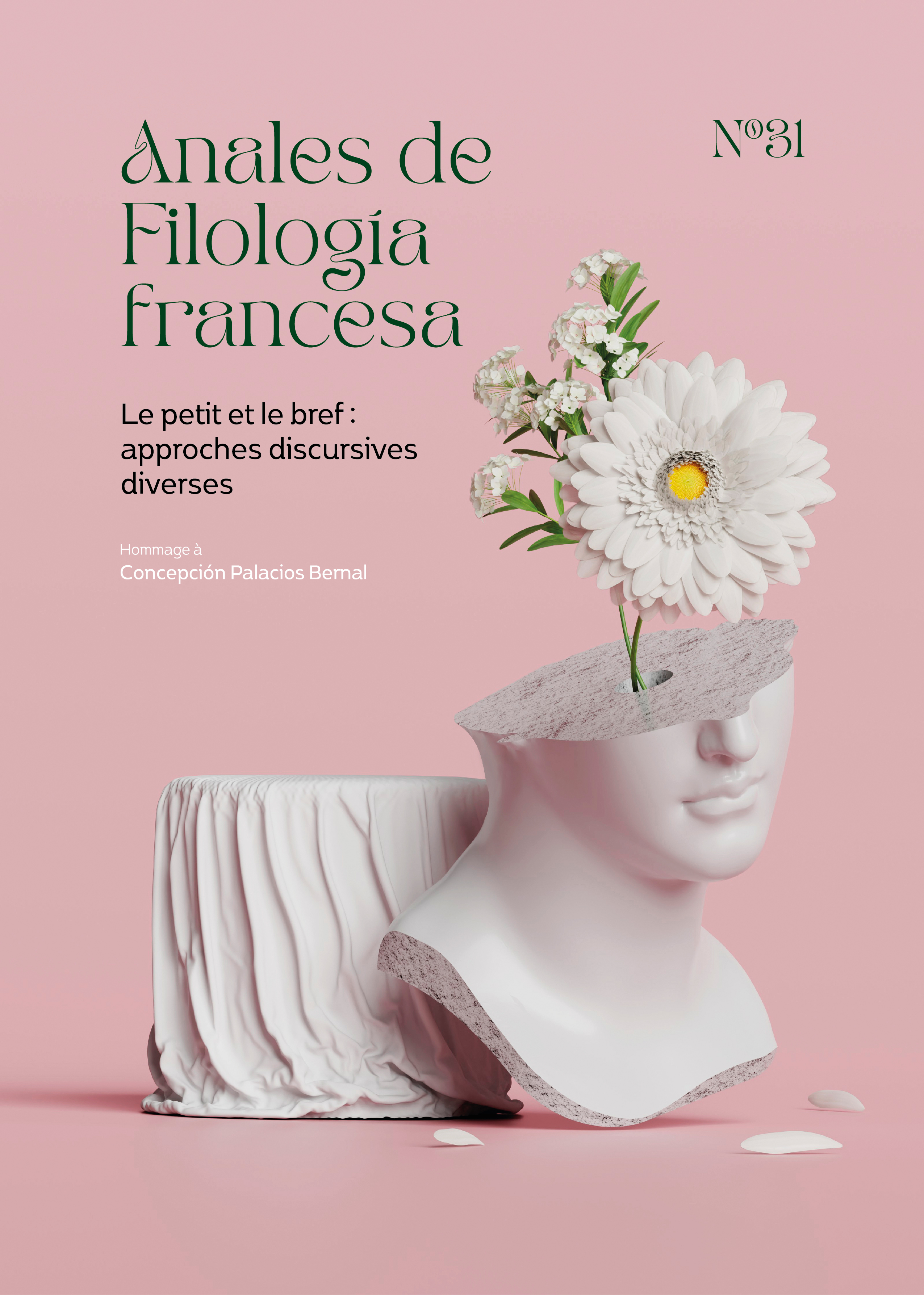The grandeur of existence versus the smallness of the poem
Abstract
Poetry, a concise and brief literary genre, captures the ephemeral present moment: the emotion of the instant. All human immensity and its links with the world are preserved in lapidary verses that enhance the joy of living. This is even more present in the concentrated lyricism of the haiku and tanka, where very limited forms are embodied to fulfil the immeasurable poetic function. These compositions, of Japanese origin, allow us to glimpse, better than any other literary manifestation, the perennial transience. This research focuses on the minimalist and powerful art of haiku and tanka in Bernard Anton's collection of poems Montagnes de cendres (Les Impliqués Éditeur, 2020), a true sample of the human scenes experienced during the covid-19 pandemic. The poet's eagle's gaze rests on vivid nature and its cyclical seasons, a gaze far removed from facts, but close to sensations and revealing the greatness of existence in the face of the brevity of the poem.
Downloads
-
Abstract328
-
PDF (Français )441
References
ANTON, Bernard. 2020. Montagnes de cendres. Paris, Les impliqués Éditeur.
BARTHES, Roland. 2015. “Le haïku, séance du 6 janvier 1979”, in Barthes, Roland, La préparation du roman, Cours au Collège de France (1978-79 et 1979-80), Paris, Le
Seuil.
BARTHES, Roland. 1970. L'Empire des signes. Genève, Skira, (coll. Les Sentiers de la création).
BERNARD, Suzanne. 1959. Le poème en prose de Baudelaire jusqu’à nos jours. Paris, Nizet.
BROUSMICHE, Anne. 2019. “Le Haïku, ce petit poème qui en dit long”, in Mémoires de l’Académie de Nîmes, IX° Série, Tome XCIII. Année 2019. https://association-francophone-de-haiku.com/wp-content/uploads/2020/12/Le-Haiku.pdf [20/01/2023].
CHIPOT, Dominique. 2023. “ Le haïku: le temps d’un instant ”. <http://dominiquechipot.fr/haikus/lexique.html> [13/06/2022].
COUCHOUD, Paul-Louis. 1916. “Les haïkaï (Épigrammes lyriques du Japon). I-IV”, Les Lettres, n° 3-7, 6 avril-6 août 1906 et Sages et Poètes d’Asie, Paris, Calmann-Lévy.
DERRIDA, Jacques. 1967. L’écriture et la différence. Paris, Seuil.
DIENG, Cheikh. Bernard Anton, un poète Canadien qui exprime son talent au travers des Haïkus, Le Courrier du Soir. <https://lecourrier-du-soir.com/bernard-anton-un-poete-canadien-qui-exprime-son-talent-au-travers-des-haikus/> [04/11/2021].
DUTEIL, Danièle. 2014. “La ville”. Revue francophone de haïku. Avril – juin, nº43. <https://www.association-francophone-de-haiku.com/wp-content/uploads/2018/04/revue-gong/Gong43.pdf> [09/03/2023].
MASUYAMI, Madoka et JULIA, Aurélie. Entretien – Le haïku ou le chant du silence. Numéro : juin 2013, p.71.
O’SHAUGHNESSY, Francis. 2016. “ Le Haïku perfomatif. Une proposition artistique en vue de dépassement de la lettre d’amour” in Archipel. Université du Québec à Montréal, p. 63. < https://archipel.uqam.ca/8729/1/D3054.pdf > [15/02/2023]
TIMENOVA-VALTCHEVA, Zlatka. 2020. “D’un toit à un autre, la lune: la ville dans le haïku de femmes” in Ártemis, vol. XXX nº 1; jul-déc.
VALÉRY, Paul. 1924. Texte intégral de la Préface de Paul Valéry à Kikou Yamata. Dans Yamata, K., Sur des lèvres japonaises (p. 306-307). Paris: Le divan.
Blog Pacepress. Un autre regard. <https://www.pacepress.org/les-impliques-presentent-les-lauriers-de-bernard-anton.html> [13/06/2022].
Las obras que se publican en esta revista están sujetas a los siguientes términos:
1. El Servicio de Publicaciones de la Universidad de Murcia (la editorial) conserva los derechos patrimoniales (copyright) de las obras publicadas, y favorece y permite la reutilización de las mismas bajo la licencia de uso indicada en el punto 2.
2. Las obras se publican en la edición electrónica de la revista bajo una licencia Creative Commons Reconocimiento-NoComercial-SinObraDerivada 3.0 España (texto legal). Se pueden copiar, usar, difundir, transmitir y exponer públicamente, siempre que: i) se cite la autoría y la fuente original de su publicación (revista, editorial y URL de la obra); ii) no se usen para fines comerciales; iii) se mencione la existencia y especificaciones de esta licencia de uso.
3. Condiciones de auto-archivo. Se permite y se anima a los autores a difundir electrónicamente las versiones pre-print (versión antes de ser evaluada) y/o post-print (versión evaluada y aceptada para su publicación) de sus obras antes de su publicación, ya que favorece su circulación y difusión más temprana y con ello un posible aumento en su citación y alcance entre la comunidad académica. Color RoMEO: verde.










